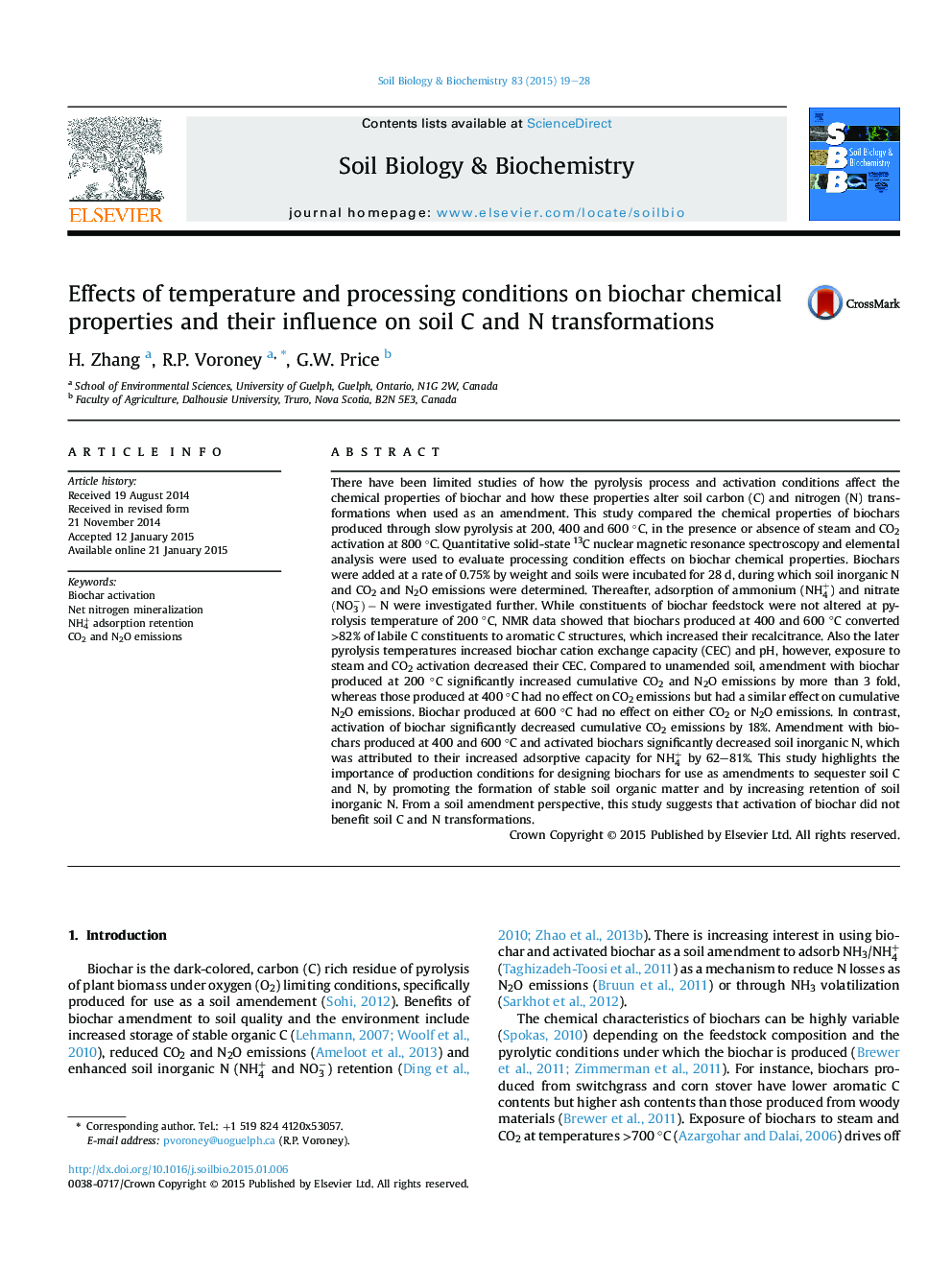| کد مقاله | کد نشریه | سال انتشار | مقاله انگلیسی | نسخه تمام متن |
|---|---|---|---|---|
| 8364236 | 1542601 | 2015 | 10 صفحه PDF | دانلود رایگان |
عنوان انگلیسی مقاله ISI
Effects of temperature and processing conditions on biochar chemical properties and their influence on soil C and N transformations
دانلود مقاله + سفارش ترجمه
دانلود مقاله ISI انگلیسی
رایگان برای ایرانیان
موضوعات مرتبط
علوم زیستی و بیوفناوری
علوم کشاورزی و بیولوژیک
دانش خاک شناسی
پیش نمایش صفحه اول مقاله

چکیده انگلیسی
There have been limited studies of how the pyrolysis process and activation conditions affect the chemical properties of biochar and how these properties alter soil carbon (C) and nitrogen (N) transformations when used as an amendment. This study compared the chemical properties of biochars produced through slow pyrolysis at 200, 400 and 600 °C, in the presence or absence of steam and CO2 activation at 800 °C. Quantitative solid-state 13C nuclear magnetic resonance spectroscopy and elemental analysis were used to evaluate processing condition effects on biochar chemical properties. Biochars were added at a rate of 0.75% by weight and soils were incubated for 28 d, during which soil inorganic N and CO2 and N2O emissions were determined. Thereafter, adsorption of ammonium (NH4+) and nitrate (NO3â)âN were investigated further. While constituents of biochar feedstock were not altered at pyrolysis temperature of 200 °C, NMR data showed that biochars produced at 400 and 600 °C converted >82% of labile C constituents to aromatic C structures, which increased their recalcitrance. Also the later pyrolysis temperatures increased biochar cation exchange capacity (CEC) and pH, however, exposure to steam and CO2 activation decreased their CEC. Compared to unamended soil, amendment with biochar produced at 200 °C significantly increased cumulative CO2 and N2O emissions by more than 3 fold, whereas those produced at 400 °C had no effect on CO2 emissions but had a similar effect on cumulative N2O emissions. Biochar produced at 600 °C had no effect on either CO2 or N2O emissions. In contrast, activation of biochar significantly decreased cumulative CO2 emissions by 18%. Amendment with biochars produced at 400 and 600 °C and activated biochars significantly decreased soil inorganic N, which was attributed to their increased adsorptive capacity for NH4+ by 62-81%. This study highlights the importance of production conditions for designing biochars for use as amendments to sequester soil C and N, by promoting the formation of stable soil organic matter and by increasing retention of soil inorganic N. From a soil amendment perspective, this study suggests that activation of biochar did not benefit soil C and N transformations.
ناشر
Database: Elsevier - ScienceDirect (ساینس دایرکت)
Journal: Soil Biology and Biochemistry - Volume 83, April 2015, Pages 19-28
Journal: Soil Biology and Biochemistry - Volume 83, April 2015, Pages 19-28
نویسندگان
H. Zhang, R.P. Voroney, G.W. Price,